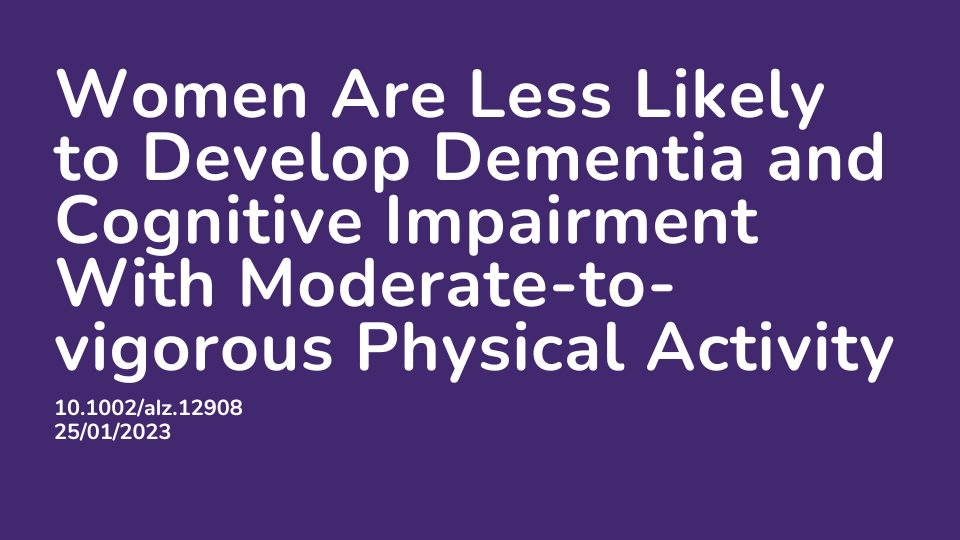Summary:
According to this new study led by the University of California San Diego, women over the age of 65 were less likely to develop dementia or mild cognitive impairment if they engaged in moderate-to-vigorous daily physical activity. The study showed that for every additional 31 minutes per day of moderate-to-vigorous physical activity, which can include walking, there was a 21% reduction in risk of developing dementia or cognitive impairment. As the participants steps increased, the risk reduced even further.
Abstract:
Introduction: Physical activity (PA) is prospectively inversely associated with dementia risk, but few studies examined accelerometer measures of PA and sitting with rigorously-adjudicated mild cognitive impairment (MCI) and dementia risk. Methods: We examined the associations of accelerometer measures (PA and sitting) with incident MCI/probable dementia in the Women’s Health Initiative (n = 1277; mean age = 82 ± 6 years). Results: Over a median follow-up of 4.2 years, 267 MCI/probable dementia cases were identified. Adjusted Cox regression HRs (95% CI) across moderate-to-vigorous PA (MVPA) min/d quartiles were 1.00 (reference), 1.28 (0.90 to 1.81), 0.79 (0.53 to 1.17), and 0.69 (0.45 to 1.06); P-trend = 0.01. Adjusted HRs (95% CI) across steps/d quartiles were 1.00 (reference), 0.73 (0.51 to 1.03), 0.64 (0.43 to 0.94), and 0.38 (0.23 to 0.61); P-trend < 0.001. The HR (95% CI) for each 1-SD increment in MVPA (31 min/d) and steps/d (1865) were 0.79 (0.67 to 0.94) and 0.67 (0.54 to 0.82), respectively. Sitting was not associated with MCI/probable dementia. Discussion: Findings suggest ≥ moderate intensity PA, particularly stepping, associates with lower MCI and dementia risk.
Article Publication Date: 25/01/2023
DOI: 10.1002/alz.12908



